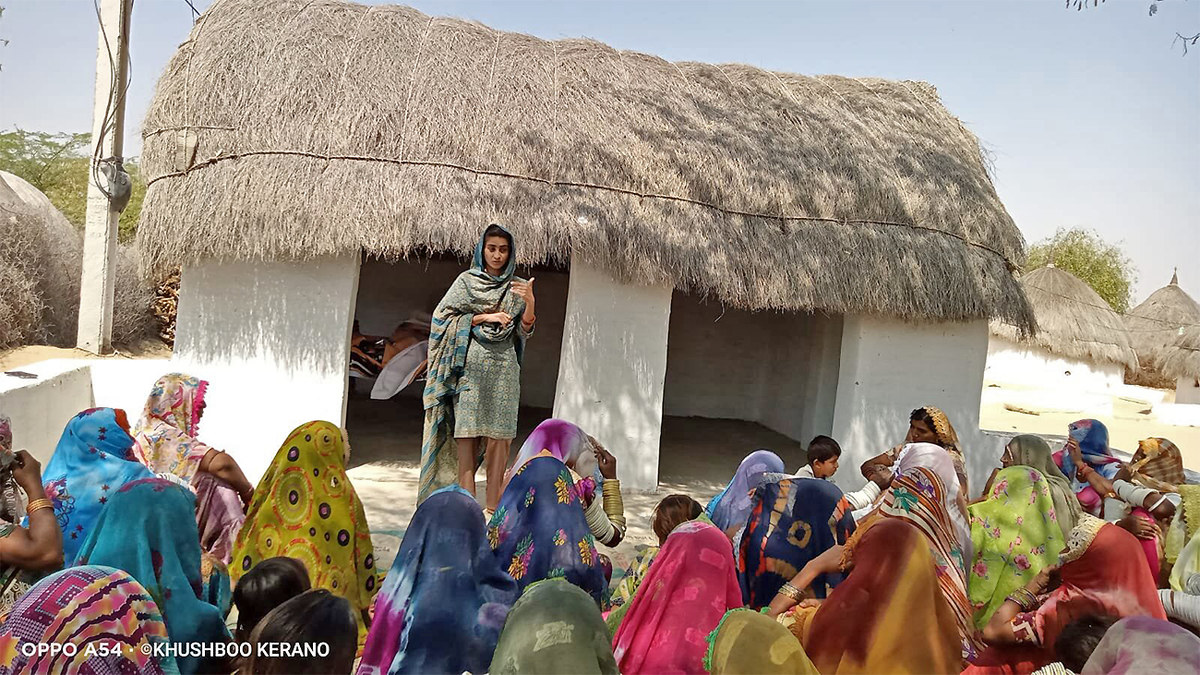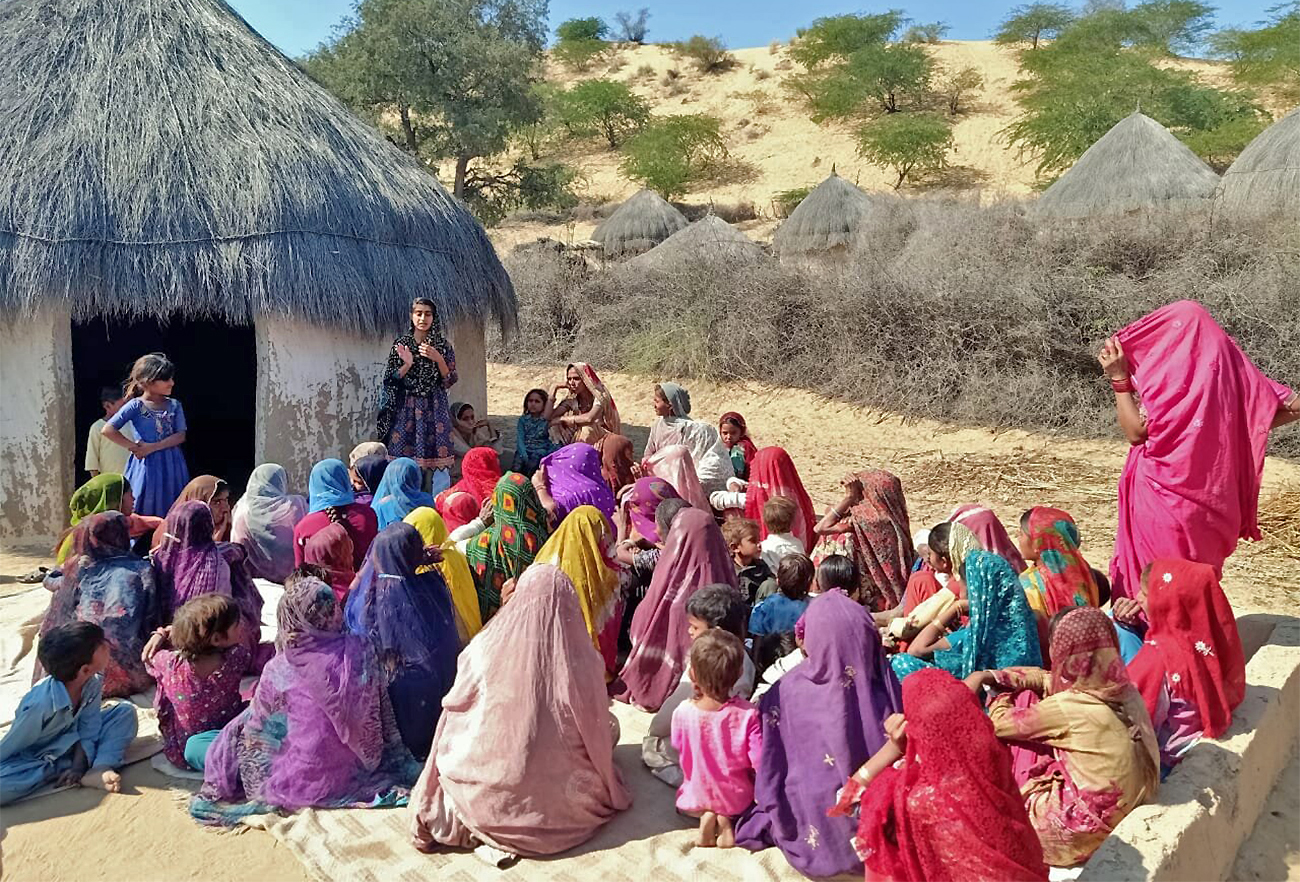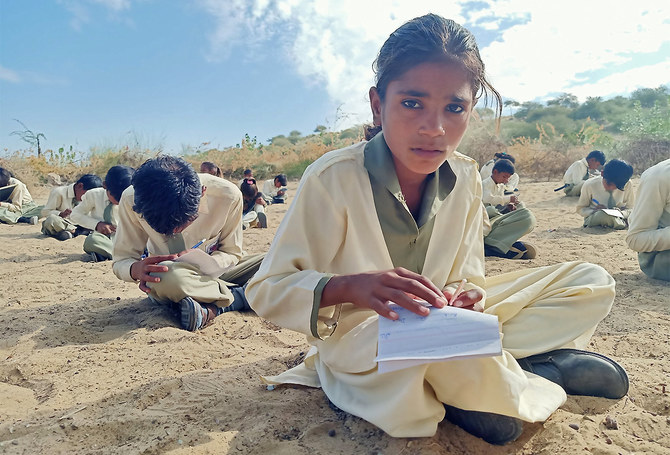MITHI: In a remote southern region of Pakistan long known for high rates of school dropouts, enrollment has seen an “unprecedented” rise thanks to a Malala Fund-backed initiative that has improved the condition of schools, increased the number of female teachers and carried out door-to-door awareness campaigns, managers of the project said.
According to a 2016 report by the education nonprofit Alif-Ailaan, Tharparkar ranked 21 out of 24 districts for school infrastructure, facilitation and dropouts. The district is considered one of the poorest in Sindh and Pakistan, with 87 percent of its population living below the poverty line, according to data from the Center on Integrated Rural Development for Asia and the Pacific.
In April 2020, the Malala Fund, co-founded in 2013 by Pakistani Nobel laureate Malala Yousafzai, initiated a project in Tharparker in collaboration with local NGO Thar Education Alliance, working in 32 middle and secondary public schools in the district to enhance girls’ enrollment.
The project has paid off.
“This is the first time that attendance of over 6,000 new students in middle and secondary schools of Tharparkar has been ensured, which is unprecedented, especially in the Thar desert region. Out of the total students, majority are girls,” Partab Shivani, CEO of the Thar Education Alliance, told Arab News.

Students attend a class at a government school in Pakistan's Tharparkar district on January 02, 2023. (Photo courtesy: Thar Education Alliance)
Shivani said average enrollment in the 32 schools the Alliance worked was 300 students per school, which had grown to 500 under the initiative.
“Enrollment and attendance were also improved from 9,600 to 16,000,” Shivani said.
Overall, the project, which ended in July last year, had enhanced enrollment and attendance of girls and boys in the 32 schools by 60 percent, the community worker said.
There were various reasons why enrollment had grown, according to Shivani.
“School conditions were improved, the number of teachers was enhanced, and door-to-door [campaigns to convince] girls’ parents to send their daughters to schools [were carried out],” he explained.

A trainer of Malala Fund engages with the community women in Khenkniyo village in Pakistan's Tharparkar district on March 08, 2022. (Photo courtesy: Thar Education Alliance)
Shivani said to engage the community, the TEA and Malala Fund selected a team of 50 women, who were given the title of ‘Champions for Change’ or CFS, in four sub-districts of Tharparkar: “CFS teams went door-to-door to convince and sensitize parents [about the importance of education] and send their daughters to school.”
He said efforts in the past to engage men in such efforts to bring girls to schools “only produced promises but not substantial results.”
“However, through Malala Fund’s female mobilizers (CFS), we focused only on mothers and we were successful and it produced positive results,” he added.
Shivani said another reason for low enrollment in schools was the lack of women teachers, which the initiative had worked to change.
“With the Malala Fund grant, Thar Education Alliance is working on improving girls’ education in the [Thar] region by [ensuring] education systems are well funded [which] can allow for hiring more female teachers,” Javed Ahmed Malik, the Pakistan program director of Malala Fund, told Arab News via text message.

An undated view shows a trainer of the Malala Fund engaging with the community women at Village Sure jo Tar, in Pakistan's Thar district. (Photo courtesy: Thar Education Alliance)
Twenty kilometers away from the district’s capital of Mithi, two sisters Zareena, 14, and Koyal, 13, were the first girls in their village of Londhar, with 1,800 households, to complete primary education.
Now, they attend a high school in Mithrio Bhatti village six kilometers away from their home, traveling daily with their father, Harchand Bheel, on motorbike.
There are no schools beyond the primary level in Londhar village.
This was common, said Shams Uddin Rathore, a senior official at the Sindh Education Department, adding that girls’ middle and secondary schools existed mostly in towns in Tharparkar, leading to 1:3 girls-to-boys school ratio.
“Weak economic conditions of the region and the social taboos don’t allow girls to get co-education,” Rathore, who works as the district education officer for Tharparkar Elementary Secondary Schools, told Arab News.
“That causes girls’ major dropout after primary level. In this scenario Malala Fund has worked hard for increasing enrollment which is very vital for female education.”
Bheel agreed:
“It is considered taboo locally that girls get co-education with boys. However, Malala Fund and Thar Education Alliance approached my family and convinced them to continue my daughters’ education further … “They also offered me transportation but I declined, with thanks.”
“After my daughters, my niece has also started going with them to school. I will continue all five of my daughters’ education when they reach this stage,” Bheel added.
Koyal, now a student in class 8, said she was thrilled to continue studying with her sister.
“I want to become a teacher,” she said, “so that I can teach other girls in my area.”












